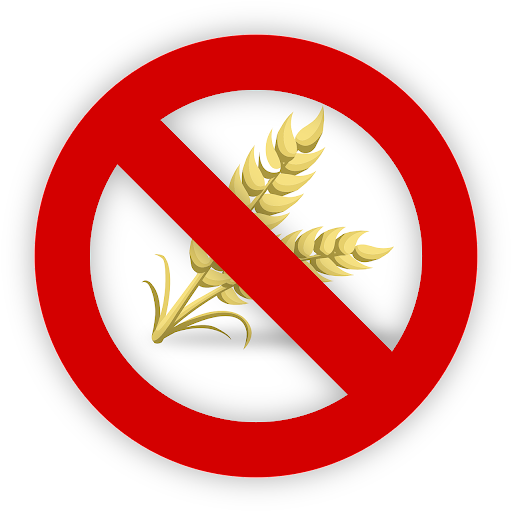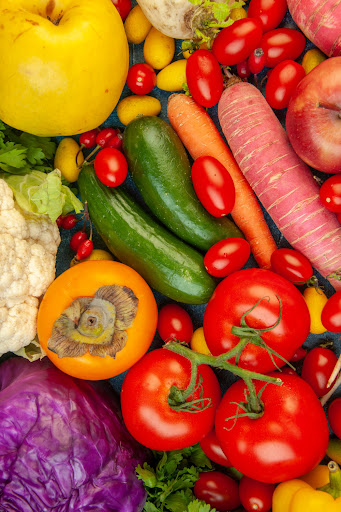- Bio Miel & Co
- 11930 views

If you're trying to lose weight, you've undoubtedly been confronted with various diets recommended by so-called nutrition experts. Some of these pseudo-experts recommend following vegan diets, while others recommend ketogenic diets. And one of these diets in vogue is the entirely gluten-free diet.
Today, we're finally going to give you an answer to that question that's been nagging at you for some time now: does eating gluten-free make you lose weight?
The history of gluten-free diets, in a nutshell!
We've been eating gluten-containing foods since the dawn of time. It is theorized that the cultivation of wheat and barley directly led to the population growth that supported the creation of our civilization.
Gluten-free diets, on the other hand, are a relatively new invention and were created in response to an incurable disease called celiac disease. People with celiac disease have severe intolerance to gluten due to an autoimmune disease.
Gluten-free diets, on the other hand, are a relatively new invention.
Gluten-free diets are also adopted by people suffering from gluten intolerance, a condition unrelated to celiac disease where gluten cannot be digested properly.
Eating gluten-free, what's it all about?

The answer is quite simple!
Gluten is a protein found in wheat and other cereals such as barley and rye. As a result, eating gluten-free means excluding foods containing wheat, barley and rye from your diet.
The answer is quite simple!
Furthermore, gluten-free diets are only indicated in the case of celiac disease (severe gluten intolerance). This is because gluten consumption can trigger an immune reaction in the small intestine of people with this autoimmune disease. This leads to damage to the intestinal mucosa, which can cause symptoms such as diarrhea, bloating, abdominal pain and fatigue.
Why eat gluten-free if you don't suffer from any disease or intolerance?
Well, most "eat gluten-free" enthusiasts, tout the benefits of this diet as a real solution for weight loss and general well-being. But is it really true? Does eating gluten-free really facilitate weight loss?
No scientific evidence!
Contrary to popular belief, a gluten-free diet can lead to weight gain. People who do not suffer from celiac disease and who opt for gluten-free can gain weight as a result of an unbalanced diet.
Many gluten-free products contain more calories, more sugar (high glycemic index) and are high in fat than their gluten-containing counterparts. To make up for missing flavor or ingredients, gluten-free foods can often be nutritionally worse for the body.
Why then do some people lose weight on a gluten-free diet?

The reason some people experience healthy weight loss when they adopt a gluten-free diet is simply that they eat more fruit, vegetables and healthier foods. A gluten-free diet also means you can't eat a lot of fast food, junk food or processed foods.
People who adopt this diet also tend to be more attentive to nutritional labels and are better informed about the contents of their food. As "bad" foods and industrial products are removed from their diets, leaving more room for healthier or more nutritionally rich foods, weight loss can occur.
This diet can also be used as a means of reducing weight.
However, this same weight loss can occur simply by limiting junk food and adopting a healthy lifestyle with good eating habits and regular physical activity.
Making smart choices without completely eliminating gluten can have better results than a completely gluten-free diet!
Eating gluten-free can help you lose weight, but beware of deficiencies!
One of the reasons why a gluten-free diet can be a bad idea is that it's harder to have a balanced gluten-free diet.
A nutrient-restrictive diet shouldn't be your first choice for weight loss. For people with celiac disease, this diet is mandatory to improve quality of life and avoid long-term health problems. For people without celiac disease, a restrictive diet is an unnecessary stress on their health. It can also be expensive! Gluten-free manufactured foods are notoriously more expensive than their gluten-containing counterparts.
Eating gluten-free is also taking the risk of:
- Be deficient in fiber: Getting fiber is much easier when your diet includes gluten-containing foods.
- Suffering from type 2 diabetes: The fiber and other vitamins and nutrients found in gluten-containing foods help protect the body against type 2 diabetes.
- Lack essential vitamins and nutrients: There's a long list of vitamins and nutrients you can easily get from gluten-containing foods. When you cut out gluten completely, it's harder to get these vitamins and nutrients.
- Weight gain: gluten-free foods are high in sugar, calories and fat.
To remember:
If you're looking for healthy weight loss, gluten-free isn't the best option. The weight loss achieved on a gluten-free diet is often unhealthy, and removing gluten from your diet is counterintuitive to a balanced diet.
Related products





